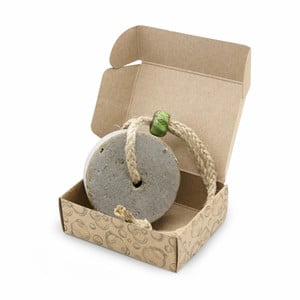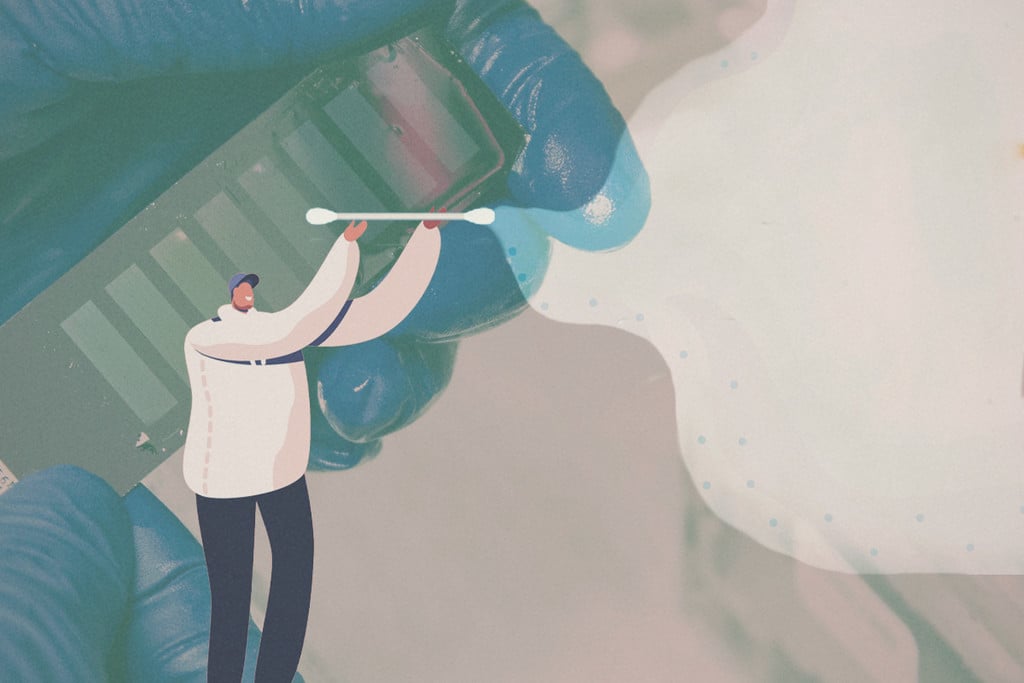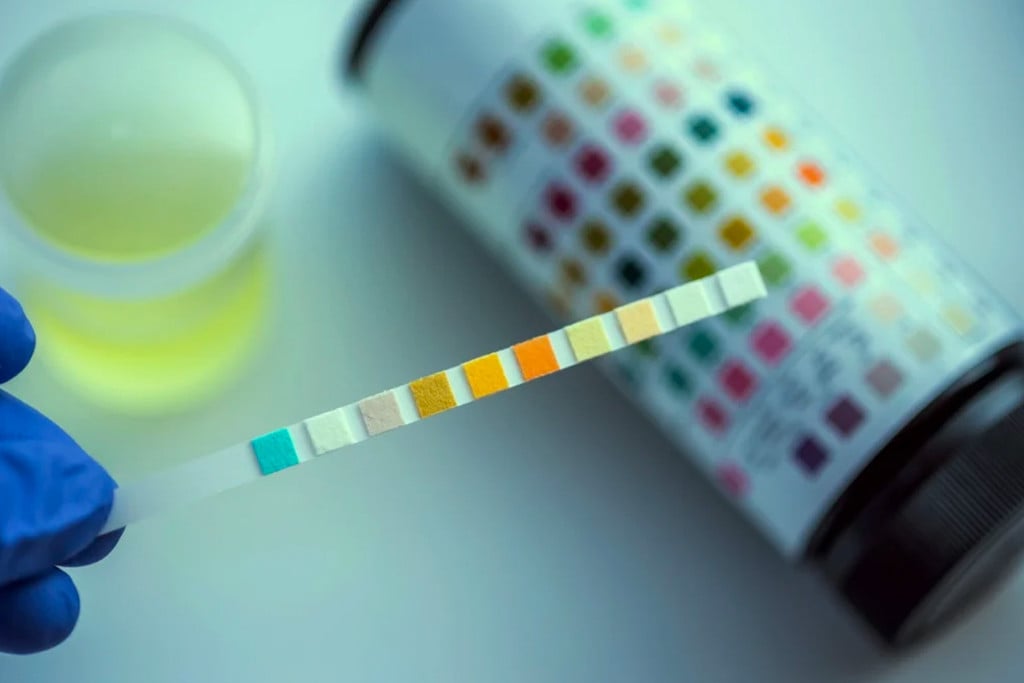.
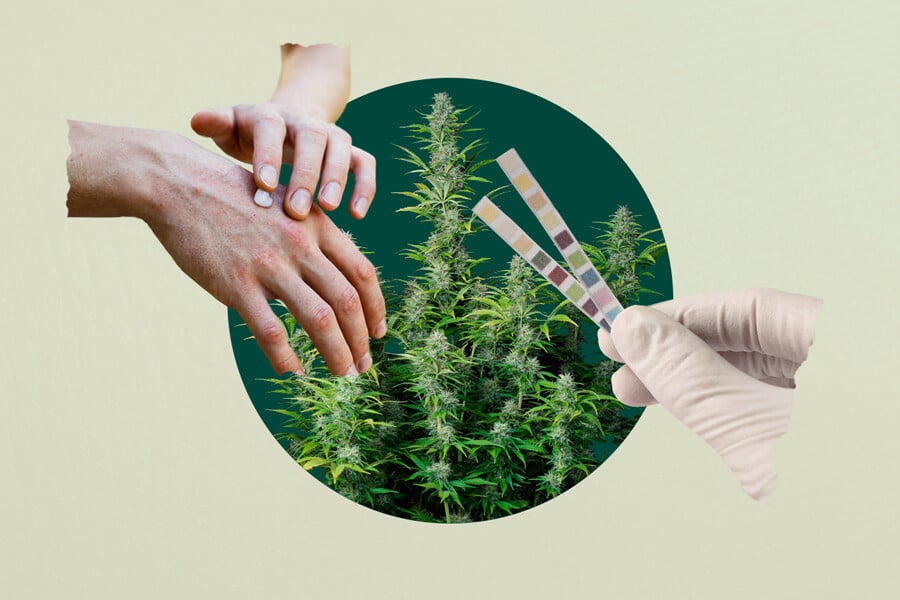
Will Cannabis Topicals Make You Fail a Drug Test?
Topical cannabis has a long history of use, and modern researchers are uncovering how these preparations affect the body. Cannabis creams, lotions, and balms soothe the skin, but can the molecules within them trigger a positive drug test at work? Find out if you should be concerned about lathering on cannabis products.
Cannabis creams and lotions feel great on the skin. For this reason, among others, many people include the herb in their daily skin care regimen—but will topical cannabis show up in a drug test? And what about products containing CBD? Find out everything you need to know about cannabis topicals and drug testing below.
Contents:
What Are Topicals and How Do They Work?
Cannabis topicals are preparations that are applied directly to the skin. Historically, physicians of various cultures administered the herb as a topical holistic preparation. The Ebers papyrus[1], dated to 1500 BCE, mentions the use of topical cannabis for inflammation, and German physician and botanist Leonhart Fuchs wrote of the topical application of cannabis roots in combating gout[2] back in 1542.
In the modern era, there are a large number of topical cannabis products available, including lotions, creams, serums, and balms. These products offer consumers a range of cannabis components, including varying levels of THC, CBD, other cannabinoids, and terpenes. Often, they are blended with other commonly used natural cosmetic products, including shea butter and vitamin E.
Ongoing studies are currently assessing the potential benefits of topically applied cannabis. The cannabinoids in these formulas are thought to interact with the endocannabinoid system in the skin. Also known as the ECS, this system helps to regulate other physiological systems through a network of signalling molecules (endocannabinoids, receptors, and enzymes).
Interestingly, compounds in cannabis, including THC and CBD, closely mimic endocannabinoids and are therefore able to influence this regulatory system in different ways. In the skin, the ECS plays an important role in cell proliferation, growth, differentiation, and hormone production. Researchers are aiming to find out if cannabis-derived compounds can influence this system in a way to optimise these functions and possibly help conditions such as eczema and psoriasis.
.jpg)
Do Cannabis Topicals Show Up on a Drug Test?
Smoking, vaping, and ingesting cannabis can certainly cause THC to flag up on a drug test. As cannabis remains prohibited in many areas of the world, this can spell disaster for certain careers. But where do topicals stand when it comes to cannabinoid screening in the workplace? Can THC cream make you test positive?
Topical cannabis products produce a local effect on the skin. The epidermis, dermis, and hypodermis stand between the outside world and the bloodstream. Products such as lotions, balms, and creams deliver cannabinoids to superficial skin cells; the molecules don’t penetrate deep enough to enter the blood and cause systemic effects.
A 2017 study[3] published in the journal Forensic Science International had volunteers apply a THC-containing topical to their neck, arms, legs, and trunk. The researchers took blood and urine samples after application and concluded that the topical product failed to produce a positive cannabinoid finding.
Can Transdermal THC Patches Show on a Drug Test?
Yes. The transdermal route of delivery allows THC and other cannabis compounds to permeate the layers of skin and gain entry into the bloodstream. Most companies screen for THC using urine testing. Metabolites of the cannabinoid remain detectable in the body for anywhere between 1 and 30 days, depending on the frequency of use. Even if you only use a transdermal patch once, you could still trigger a positive test during the next three days following application.
What’s the Difference Between Topicals and Transdermal Patches?
Although both are applied to the skin, topical and transdermal routes of administration feature two very different mechanisms. Transdermal patches containing cannabinoids feature permeability enhancers that allow THC, CBD, and other compounds to easily traverse the multiple layers of skin and work their way into the bloodstream. The technology within transdermal patches releases cannabinoids slowly over a period of time, resulting in a sustained release via the skin. Once in the blood, cannabinoids enter the brain and other organs and produce systemic effects.
Not only can users experience psychoactive effects from transdermal THC patches, but metabolites from the cannabinoid can show up in urine tests for several days after using them.
Can Topical CBD Make You Fail a Drug Test?
It depends on the route of administration. Many CBD products contain only trace levels of THC, whereas others contain equal parts THC and CBD. However, if applied topically as a cream or lotion, these products will not deliver THC into the systemic circulation, and therefore can’t cause a positive cannabinoid screening. In contrast, transdermal patches that contain CBD and enough THC to raise blood levels to 50ng/ml[4] can trigger a positive result. If you want to use transdermal CBD patches without risking failing a screening, ensure that the product contains no trace of THC.
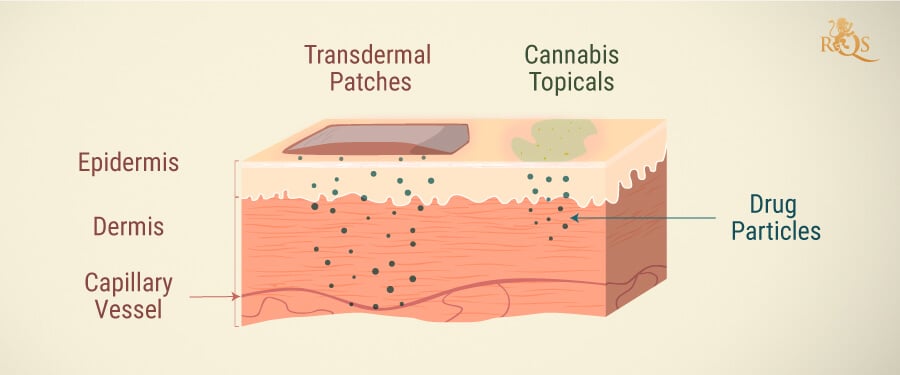
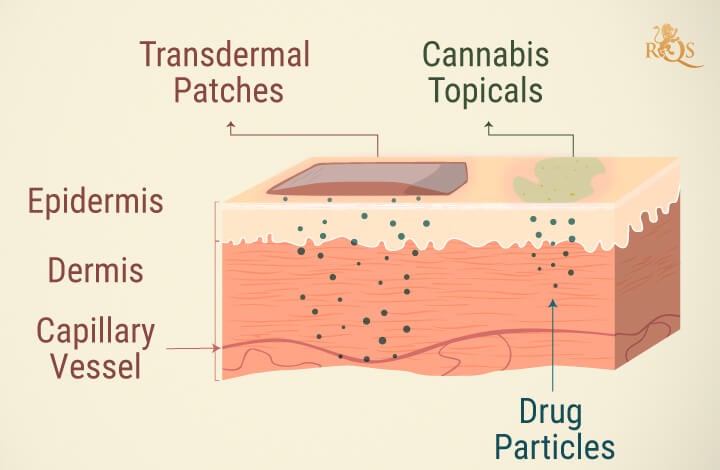
Can Cannabis Topicals Get You High?
Creams, lotions, balms, and other products applied directly to the skin can’t get you high, regardless of the concentration of THC in the preparation. Although these topicals produce local effects on the skin, don’t expect to experience red eyes, munchies, and euphoria.
If you’re aiming to get high without inhaling or ingesting cannabinoids, then transdermal patches containing large concentrations of THC will produce some level of psychoactive effect. However, due to the low and steady release of cannabinoids through the skin, don’t expect the experience to come on in the same way as smoking a joint.
Cannabis Topicals: Always Err on the Side of Caution
Cannabis topicals have been used throughout human history, and modern researchers are attempting to find out exactly how they impact the ECS in the skin. If you started this article wondering if hemp lotion will show on a drug test, you now have your answer! Cannabinoids in topical formulas cannot penetrate the skin and enter the bloodstream.
However, all of this changes with transdermal application. These patches deliver cannabinoids into the blood and can cause a psychoactive effect and a positive screening. Even if you’re using CBD patches, you need to ensure they contain no trace amounts of THC if you’re trying to avoid detection on a drug test.
- History of cannabis and the endocannabinoid system - PMC https://www.ncbi.nlm.nih.gov
- Cannabis Roots: A Traditional Therapy with Future Potential for Treating Inflammation and Pain https://www.liebertpub.com
- Topical application of THC containing products is not able to cause positive cannabinoid finding in blood or urine - PubMed https://pubmed.ncbi.nlm.nih.gov
- Content - Health Encyclopedia - University of Rochester Medical Center https://www.urmc.rochester.edu


























